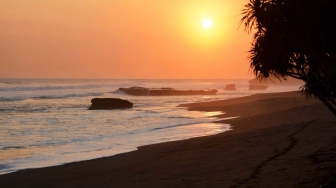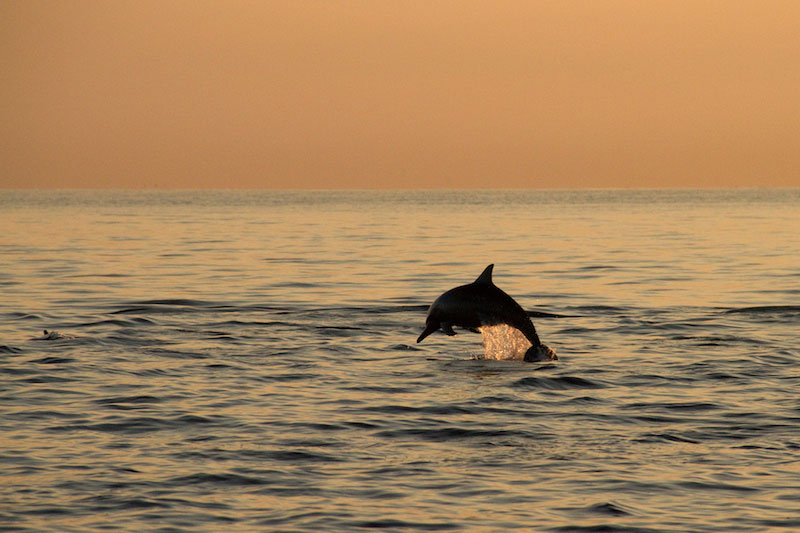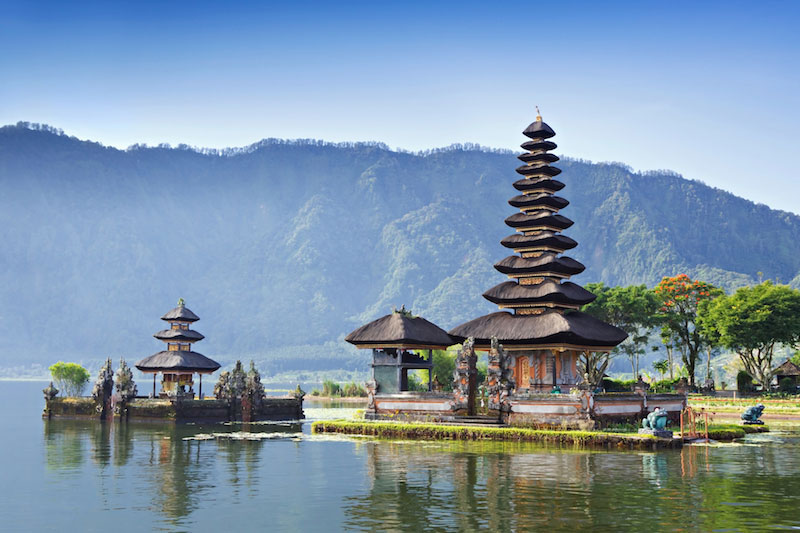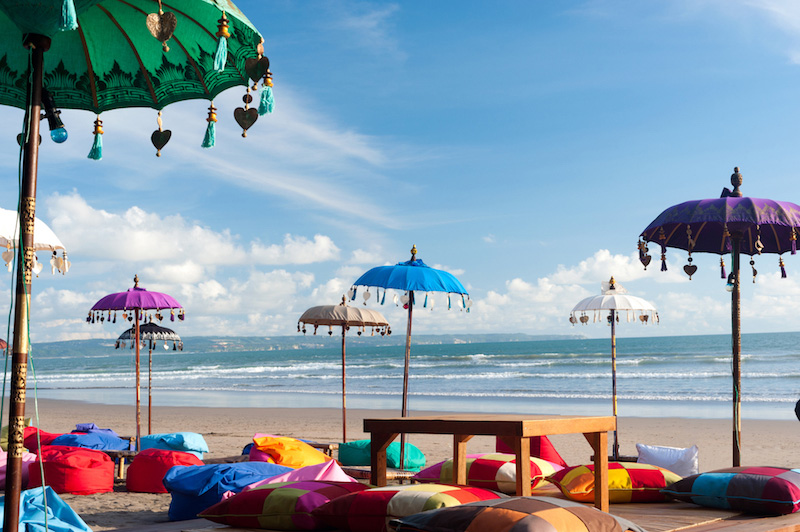Bali is known as one of the most charming, exotic island destination. It has everything to offer from the pristine beaches to fascinating cultural lifestyle and attractions. To list all of the amazing things about this attractive island, will be endless. So to name a few, these are the selection of the ten fun facts that will be useful for the vacationers. Also watch this video and discover Bali, Indonesia.
-
Black Sand
 The beaches scattered all over Bali are among the peerless in the world. Other than the typical tropical white beaches it offers, Bali also boasts a golden chain of magnificent black sands, especially on the north-western coastlines, with tranquil pristine coves, wedged in-between. The beaches serve as havens for tourists, fishermen and surfers who explore coral reefs, exotic fish species, and strong waves. The beaches lure visitors with residual shipwrecks, panoramic views and a vast scope of adventure and water activities.
The beaches scattered all over Bali are among the peerless in the world. Other than the typical tropical white beaches it offers, Bali also boasts a golden chain of magnificent black sands, especially on the north-western coastlines, with tranquil pristine coves, wedged in-between. The beaches serve as havens for tourists, fishermen and surfers who explore coral reefs, exotic fish species, and strong waves. The beaches lure visitors with residual shipwrecks, panoramic views and a vast scope of adventure and water activities.
-
210 Days Calendar
Balinese people relied on a 210-day calendar, also known as the Pawukon Calendar. Even though Denizens still equate their birthdays based on this classic calendar, the Balinese people would give their age using the Western Calendar. The Bali calendar 210 days has ten discrete week system and underpins significant events each year.
-
Nyepi Day
Nyepi day, also known as ‘day of silence’ is a unique celebration among the Bali people during which the buzzing activity of the islands is replaced by sweeping tranquility, with work, travel and noises being eschewed. The silence and meditation ushers in a new year. Rituals and sacrifices are practiced in various islands by the local people.
-
Dolphins in Bali
 Long ago, fishermen would steer their boats up to Lovina Bay in pursuit of tuna. Today, tourists accompany fishermen who trail dolphins that in turn lead them to grand schools of tuna. Before the crack of dawn, you can join fishermen who unveil spots infested by dolphins in their diversities.
Long ago, fishermen would steer their boats up to Lovina Bay in pursuit of tuna. Today, tourists accompany fishermen who trail dolphins that in turn lead them to grand schools of tuna. Before the crack of dawn, you can join fishermen who unveil spots infested by dolphins in their diversities.
-
Similar First Name
Names strike an oddity for the Balinese people as there are only four for men and women, first born-Wayan, second-Made, third-Nyoman and fourth-Ketut. A fifth kid starts fresh as a Wayan. Other people are given a series of nicknames while some stick with original names. Thereby, you have to try to be even more descriptive when addressing the Balinese, for example, you say “Yoga Ketut or Mountain Ketut.”
-
Known by Many Names
The prehistoric Bali Island is one of Indonesia’s provinces. Bali sits various central mountains featuring peaks that surpass the 3,000 meters mark. It is called The Island of Peace, The Island of Love, and Morning of the World, The Island of Hinduism, and The Island of Gods.
-
Two Active Volcanoes
Bali’s twin active volcanoes, Mt. Batur (5,600 feet) located in Bangli regency together with Mt. Agung (10,000 feet) in the East have become ultimate tourist hotbeds. Mt. Batur active volcanoes and its reverence by the locals have attracted a stream of onlookers. On the slopes of Mt. Agung lies Pura Besakih, a large temple while others overlook the mountain. Any eruptions could endanger lives.
-
World’s Most Expensive Coffee
Kopi luwak is regarded as the most expensive of all coffee globally. High prices are attributed to its unique approach in producing coffee. Coffee beans digested by the civet cat-like Indonesian animal are used. The coffee’s robust taste, flavor and unique properties are bait to coffee enthusiasts who want a unique brand.
-
Hinduism is the Main Religion

Bali is nestled in a Muslim dominated country. Startlingly, a substantial portion of the areas’ population embraces Hinduism. In the region, locals savor Babi Guling or roasted pig; these delicacies are sloughed off by Muslims elsewhere. If you would like to learn more about the popular temples in Bali, click here for more information.
-
Balinese Dance
The dances and dramatic performances of Balinese are an important part of Balinese religion and culture. These dances and performances are included in every ritual in Bali. They signify the devotion of the locals to the gods.







